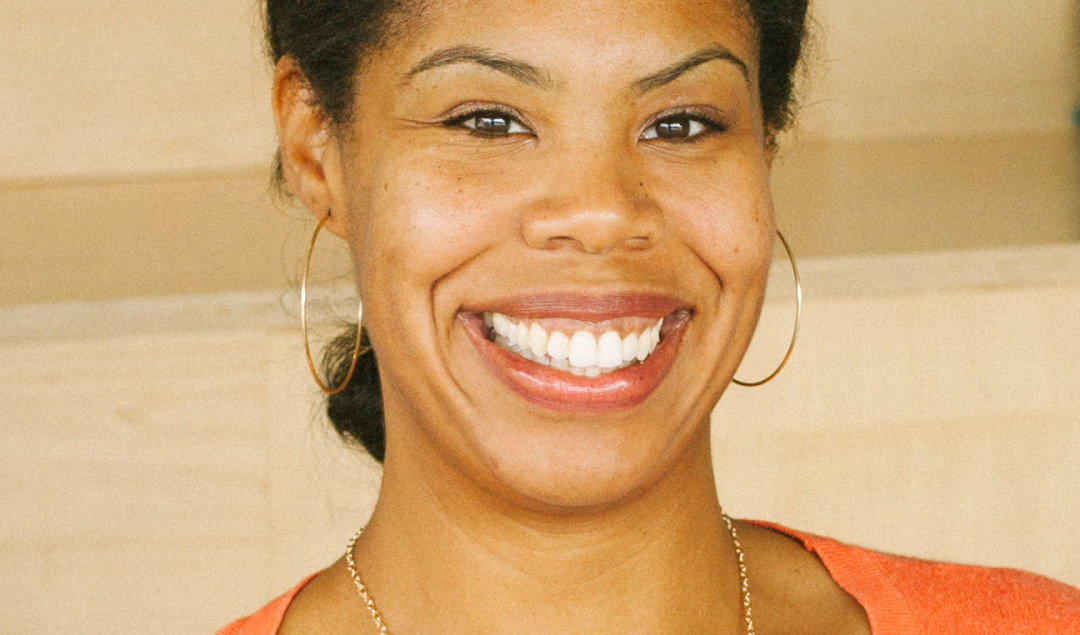Erica Baker, Engineering Manager

How did you start, or what made you decide to work in tech?
I was 7 and my mom got our first computer, and she was showing me the stuff she did at work because she was in combat plans at the Air Force so she used to have to use Basic to do stuff.
When we moved to Alaska, the people at my school knew I liked computers and I was in the gifted program, so they said, “Here, we’re going to send you off to this thing down in the city.”
It was a HyperCard class. That was fun. I made a presentation about the Hope Diamond using HyperCard, which I really enjoyed. And from that point on I was just sitting around computers a lot at school. Then around [age] 12 or 13, my mom got us another computer, like a new computer. I was really excited about that.
The CD-ROM drives had just come out, and I was like, “I want a CD-ROM drive in our computer.” So, she bought it, and she didn’t know how to install it, so I installed it. I was hooked right then.
Around the time I was 14 or 15, I discovered the internet. Right before that, I was using Goferd at home. But the actual world wide web with Netscape? That was around when I was 14 or 15. I never got off the internet ever since. That is how I got started with computers. That is how I decided I wanted to be a CS major.
Tell me about college.
I was one [black woman] of like 73 people in my graduating [high school] class. So, it was a big shift with class size. In that big, giant lecture hall of students, I was the only black woman. I was like one of two black people, total, in that class. I think the teacher thought that I accidentally chose that class and actually ignored me and didn’t pay attention to my questions.
I was a naive, shy little kid from Alaska then. I did not have the skills to combat that at the time. Right now, if I were in that situation, I would walk up to him and say, “Listen, I’m here. I’m going to do this.” I would demand what I needed. Back then I was still a shy little kid. I thought they didn’t want me here. So I left the University of Miami, dropped my CS major, went to Alaska, and switched to an IT major.
Why to Alaska? Did you feel more comfortable there than in Miami?
That’s where my mom was. My mom and my brother and my sister were in Alaska, and that’s where I wanted to be. My family was there. I do not like Alaska itself.
How did you go into from IT to pretty much software engineering?
I don’t do traditional software engineering right now. Right now I’m a build and release engineer, so I write some code if I need to, but most of my time is spent making sure the build infrastructure is up and running. That is probably more traditional IT. I do write code on my own time, like when I’m at home fiddling with stuff on the internet. When I’m doing what my passion is–genealogy–I wrote code for the tools I need for that.
I started at the University of Alaska Statewide System. They hired me as an intern and switched me to full-time when I was 21. I was a Windows Domain Admin, and then I stayed in the IT space when I left Alaska and moved to Atlanta and worked in the Network Operations Center at Home Depot’s headquarters. Then I was at this place called Scientific Games. I did IT stuff there. Then I switched to Google and did IT stuff, and I was doing IT stuff there and exec IT support.
At the end of my career at Google, I was doing SRE stuff, and then I came to Slack. SRE is the people who keep your site up.
Can you explain more about what a build and release engineer is? What do you do, and what is the usual day-to-day?
For me, I’m the originator of this role at Slack. Before me getting here, every team that released a product for Slack, like the Windows App, The iPhone App, the Android App, and the Mac App were building the app themselves. They’d write the code, and they’d handle getting it into the App store. That doesn’t scale well. So, what I do is write the code and build the tools and build the infrastructure that takes the code that the other teams write and turns it into the apps that then go out into the world.
There’s never going to be a “done” to my job; there’s always going to be more stuff to do. But if there were a done, I would not have to do anything, because all the stuff that I’ve written, all the tools I’ve build, all the infrastructure I’ve created would automatically handle building the apps.
What do you love most about your job?
Right now I love that it’s a challenge. I’ve never been a release engineer before or a builder release engineer before, so I’m learning a lot, which I really enjoy. If I’m not learning on my job, if I’m not challenged by it, I get bored really quickly. I like that it is challenging and I am learning.
Read part two of our interview with Erica here.



